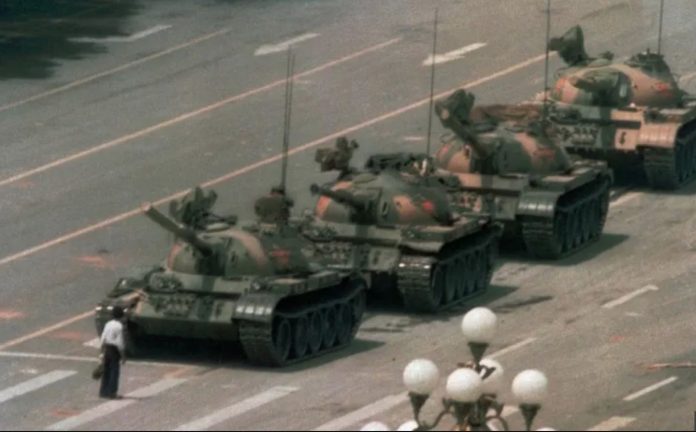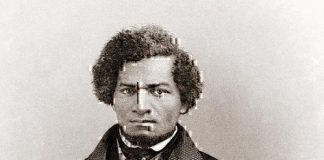When a promotional video for German camera maker Leica hit the web this week, it looked like a bold statement about the hard work done by photojournalists around the world. But the company is now distancing itself from the 5-minute video after Chinese social media users cried foul and the word “Leica” was banned on social media site Weibo. The problem? The dramatic video is set in 1989 during the Tiananmen Square pro-democracy protests that are forbidden to talk about in China.
The video, titled “The Hunt,” is a fictionalized montage of various conflict areas around the world. Its most controversial sequence shows an English-speaking photojournalist scrambling to find his camera and being questioned by Chinese authorities.
Tiananmen Square is never mentioned by name, but the promotional film starts with the year and location of the student-led protests displayed prominently: Beijing 1989. The last shot of the film shows the photojournalist raising his camera and a reflection of the anonymous “Tank Man” in his lens. The real photo was taken by Jeff Widener and came to be one of the most famous photos of the 20th century.
The promo video, which was posted on YouTube and Twitter, was created by Brazilian ad agency F/Nazca Saatchi & Saatchi, according to the South China Morning Post. And while the agency has done plenty of work for Leica in the past, the camera company is now claiming that the video was not “officially sanctioned.”
“Leica Camera AG must, therefore, distance itself from the content shown in the video and regrets any misunderstandings or false conclusions that may have been drawn,” Emily Anderson, a spokesperson for Leica, told SCMP.
Leica has a presence in China not just selling cameras, but also through a partnership with Huawei building lenses for its smartphones. Support for Huawei in China has become a patriotic undertaking as the tech giant fights with western countries over potential espionage allegations in support of the Chinese government. And some business owners in China have even given discounts to Huawei phone owners as a way to support the tech giant, which itself has become a central figure in the rising tensions between the U.S. and China.













